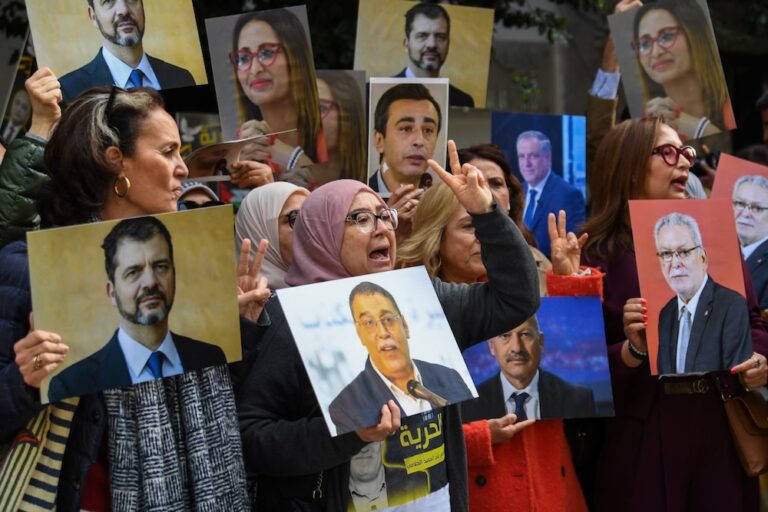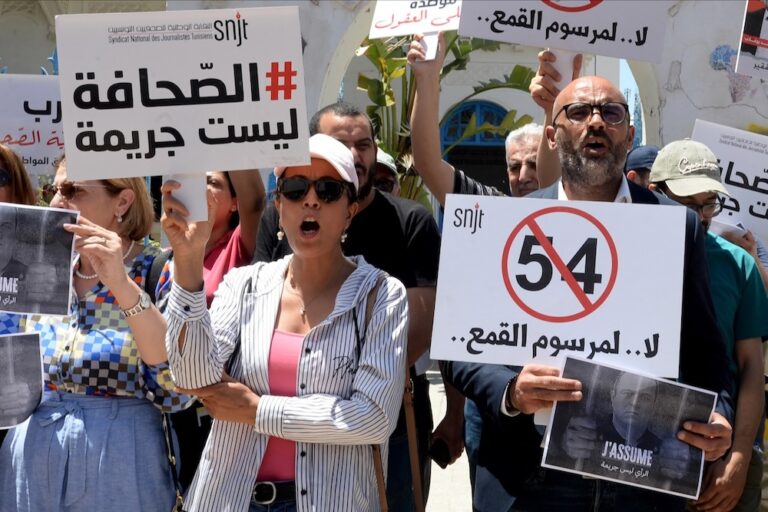(RSF/IFEX) – On 1 March 2005, Tunisia, host of the November 2005 World Summit on the Information Society (WSIS), blocked access to the opposition Progressive Democratic Party (PDP) website. The move places the PDP site on a long list of filtered sites, including http://www.radionongrata.org, the website set up by RSF to report on the summit. […]
(RSF/IFEX) – On 1 March 2005, Tunisia, host of the November 2005 World Summit on the Information Society (WSIS), blocked access to the opposition Progressive Democratic Party (PDP) website. The move places the PDP site on a long list of filtered sites, including http://www.radionongrata.org, the website set up by RSF to report on the summit.
The organisation said the action indicated a tightening of censorship in the country, and condemned Tunisia’s model for developing the Internet.
“President Ben Ali believes that the fact that the United Nations agreed to hold a summit on the Internet in his country means the international community approves of his policy in this field,” RSF said. “We believe that, on the contrary, the Internet model advocated by Tunisia, combining censorship with a crackdown [on dissidents], should be condemned by countries that care about freedom of expression.”
The PDP site (http://www.pdpinfo.org) may have been blocked for having fuelled the debate provoked by the announcement of a November 2005 visit by Israeli Prime Minister Ariel Sharon. Its home page features a photo of the Israeli leader accompanied by the slogan, “No to the visit of the bloodthirsty one”. The party’s leader, Néjib Chebbi, has said in reference to the invitation, “The government should review its decision or Sharon will walk on our corpses.”
The website http://www.radionongrata.org was set up by RSF for the preparatory meeting of the WSIS in Geneva on 17-25 February 2005. It lists the organisation’s recommendations for free expression on the Internet and carries a personal account by Tunisian cyberdissident Zouhair Yahyahoui, who has spent more than a year and a half in jail.
Following the preparatory meeting, President Ali accused human rights NGOs of carrying on a “trade in distorting Tunisia’s image.” He also repeated that the holding of WSIS in his country was a “world affirmation [of] our choices and orientations.”
Websites censored in Tunisia
Human rights websites
http://www.maghreb-ddh.org
http://www.tunisiadaily.com/tunisnews.html
http://www.rsf.org; http://www.internet.rsf.org and http://www.radionongrata.org
http://www.zarzis.org
http://www.dabbour.net
http://www.tunisia-info.org
http://www.nawaat.org
http://www.verite-action.org
News websites
http://www.tunezine.com
http://www.kalimatunisie.com
http://www.quibla.net
http://www.elwatan.com
http://www.islamonline.net
http://www.oulala.net
http://www.africaintelligence.fr
http://www.tunisnews.net
http://www.reveiltunisien.org
http://www.alternatives-citoyennes.sgdg.org
Political opposition websites
Progressive Democratic Party: http://www.pdpinfo.org
Tunisian Communist Workers Party: http://www.albadil.org
Tunisian Perspectives: http://www.perspectivestunisiennes.net
Congress for the Republic: http://www.cprtunisie.com
Ennahdha Party: http://www.nahdha.net


